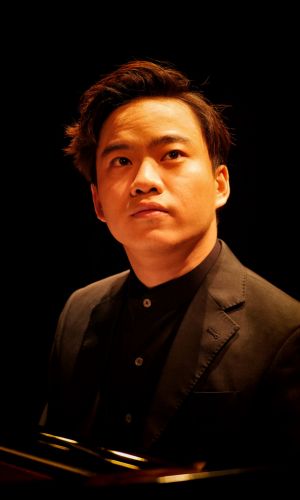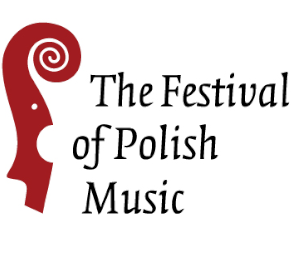hrs 19.00
FESTUM IUVENTUTIS – YOUNG FESTIVAL
Viet Trung Nguyen, piano
Karol Kurpiński: Polonaise in D minor
Ignacy Jan Paderewski: Minuet in G major op. 14 No. 1
Ignacy Jan Paderewski: Sarabande in B minor, Op. 14 No. 2
Ignacy Jan Paderewski: Melody in G flat major op. 16 No. 2
***pause***
Fryderyk Chopin: Mazurkas op. 17
Mieczysław Karłowicz: Waltz in G major
Fryderyk Chopin: Ballade in F minor op. 52
Fryderyk Chopin: Sonata in B flat minor op. 35

Trung Viet Nguyen
Vietnamese pianist born on 30 September 1996 in Ha Noi who has lived in Poland since childhood. He is currently pursuing postgraduate studies with Professor Katarzyna Popowa-Zydroń at the Academy of Music in Bydgoszcz. His recent achievements include winning the 17th National Piano Festival “Chopinowskie Interpretacje Młodych” in Konin-Żychlin (2021), 5th prize at the Fryderyk Chopin National Competition in Warsaw (2020), Grand Prix at the International Chamber Music Competition in Vietnam (2019) and 3rd prize at the Karlovac International Piano Competition in Croatia (2019). In 2021, he took part in the 18th Frederic Chopin International Piano Competition in Warsaw. He has given concerts in Europe: Germany, France, Russia, Ukraine, Hungary and Poland, as well as in the United States, Thailand, South Korea, Japan and Vietnam. During the Expo 2020 World Expo in Dubai, he gave a series of recitals as part of the NIFC concerts in the Polish Pavilion. As a soloist, he has performed with the Vietnam National Symphony Orchestra, the Hanoi Symphonic Orchestra, the National Philharmonic Orchestra in Warsaw, the Polish Radio Orchestra and the Lublin Philharmonic Orchestra, under such conductors as Le Phi Phi, Honna Tetsuji, Łukasz Borowicz, Marek Pijarowski, Wojciech Rodek and Jacek Rogala. The pianist also performs chamber music, collaborating with, among others, the Ulysses Quartet, the Arod Quartet and the Arso Quintet. His past performances include appearances at the Artur Rubinstein Festival in Łódź (2019), the Frost Chopin Piano Festival in Miami (2018, 2019), Chopin concerts in Żelazowa Wola, the Fryderyk Chopin Museum and the Royal Łazienki Park. He has taken part in numerous masterclasses given by, among others: Tatiana Shebanova, Dang Thai Son, Kevin Kenner, Dmitri Alexeev or Andrzej Jasinski.
Magdalena Dziadek
